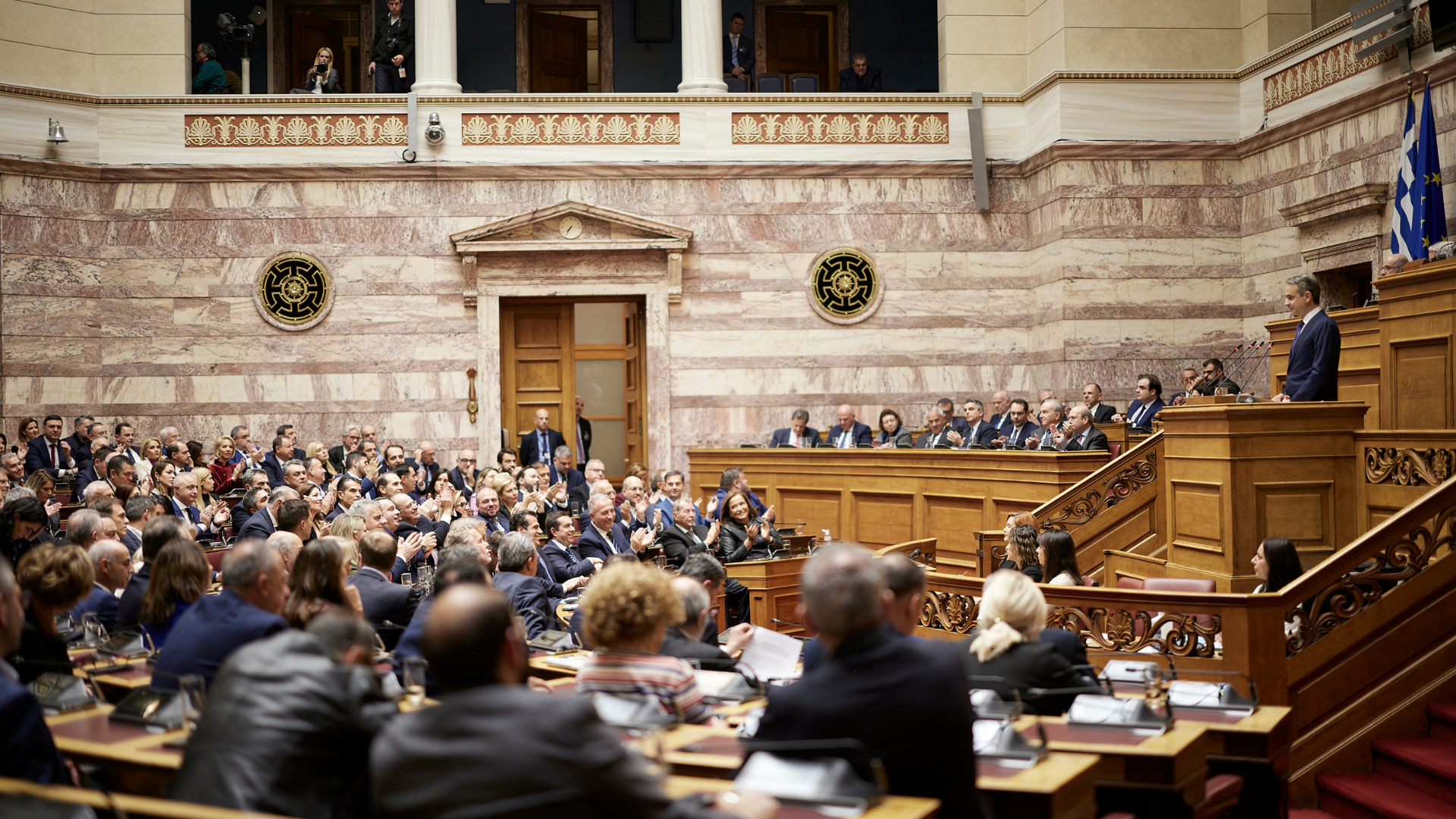Greece’s Parliament passed the 2025 national budget on Sunday night after a five-day debate.
The centre-right New Democracy (ND) government of Prime Minister Kyriakos Mitsotakis secured the budget’s approval with 159 votes in favour out of 300 MPs, a vote that also served as a confidence test for the government.
The budget, described by Mitsotakis as a “budget of progress,” targets a 2.4% primary surplus of GDP for 2025, following a projected surplus of 2.5% in 2024.
Key highlights include twelve tax cuts and twelve salary increases, reflecting the government’s focus on economic growth and social support. The budget also includes measures aimed at reducing bank fees, with basic transactions now free of charge and limits on money transfer fees set at 0.50 euros for amounts up to 5,000 euros.
Προχωράμε σε παρεμβάσεις με επίκεντρο τον πολίτη. Μέτρα που συνάδουν με τους ευρωπαϊκούς κανόνες και την εθνική οικονομική αντίληψη. Και έρχονται να αναπροσανατολίσουν τα πιστωτικά ιδρύματα στην κεντρική τους αποστολή, αλλά να είναι και συμβατά με τη χρηματοπιστωτική σταθερότητα. pic.twitter.com/uuKHK5zvLc
— Prime Minister GR (@PrimeministerGR) December 15, 2024
A key point of the budget debate was the announcement of a 6.1 billion-euro defence spending increase, reflecting Greece’s response to regional security concerns. Additionally, the government has earmarked 100 million euros from the banking sector’s profits for the renovation and construction of state schools.
During budget debate, Mitsotakis emphasised Greece’s strong economic performance in 2024, noting that the country ranks among the top three worldwide in terms of economic growth, according to The Economist. Greece also aims to become a tech hub, with plans to host the first EU AI factories.
The budget faced strong opposition from all major opposition parties, including PASOK, SYRIZA, and the Communist Party.
Critics, such as PASOK leader Nikos Androulakis, accused the government of prioritising oligopolies over the welfare of ordinary citizens, while SYRIZA’s Socrates Famellos claimed the government was exacerbating inequalities.
Despite the opposition’s criticism, the ND government secured the budget’s passage, with additional support from independent right-wing lawmakers.
